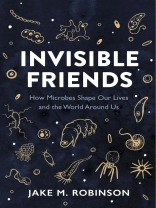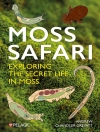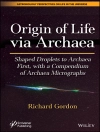As we continue to live through a pandemic, all eyes are on microbes: an imperceptible and pervasive threat that hangs heavy on the air and clings to surfaces. But the reality of micro-organisms is far more diverse and life-sustaining than such a notion would have us believe (hence the title of this book). Not only are they omnipresent, but we are highly attuned to their workings – both in the world at large and right here within our own bodies. Meanwhile, cutting-edge microbiome research is changing our understanding of reality, challenging fundamental concepts of free will and individuality. Threaded through everything are microbes: the very glue that holds ecosystems together.
This topical, engaging and original book counters the prevailing narrative of microbes as the bane of society, along the way providing much-needed clarity on the overwhelmingly beneficial role they play. We discover how the microbiome is highly relevant to environmental and social equity issues, while there’s also discussion about how microbes may influence our decisions: even the way we think about how we think may need to be revisited. Invisible Friends introduces the reader to a vast, pullulating cohort of minute life – friends you never knew you had.
Table des matières
Introduction
1 The microbiome and humans as walking ecosystems
2 Rekindling old friendships in new landscapes
3 Antibiotic resistant landscapes
4 Microbes and social equity
5 The Psychobiotic Revolution
6 The Lovebug Effect
7 The Holobiont Blindspot
8 The glue that holds our ecosystems together
9 Microbes and trees
10 Rewild. Regenerate. Restore
11 Biointegrated design
12 Microbiome-Inspired Green Infrastructure (MIGI)
13 To catch a thief: forensic microbiology
14 Microbes in outer space
15 You are what your microbes eat
16 Nature connectedness
Conclusion
Microbes 101
Notes
Glossary
Bibliography
A propos de l’auteur
Jake M. Robinson is a microbial and restoration ecologist currently living in Australia. He earned a Ph D in the environment-microbiome-health axis at the University of Sheffield, UK. His research interests span microbes, ecosystems, social equity issues and strategies to conserve and restore nature. Jake is a core member of the UNFCCC think tank, Resilience Frontiers, specialising in biodiversity–health connections.
The Nature of Pandemics: Why Protecting Biodiversity is Key to Human Survival is Jake’s third book.












